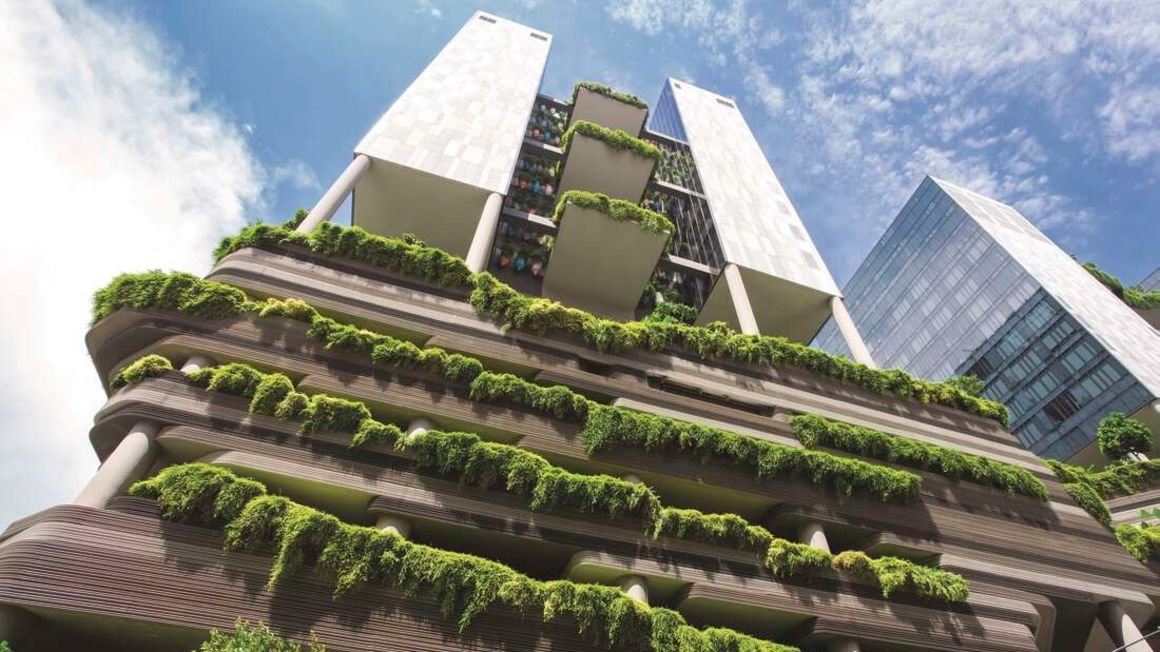To support the development of certified green buildings in South Africa, the International Finance Corporation (IFC) has partnered with Absa Bank to help expand the bank’s residential and commercial loans and mortgage finance programme for buildings that are environmentally responsible and resource-efficient.
IFC will provide a loan of up to R4.5 billion (approximately $236 million) to support Absa’s strategy to expand its green buildings finance portfolio which will include new certified green buildings and mortgages.
This will enable the bank to increase access to green building finance for developers and individual home buyers.
In line with its climate strategy, Absa will use the investment to finance environmentally friendly green buildings certified under IFC’s Excellence in Design for Greater Efficiencies (EDGE) programme as well as similar green building certifications, which helps standardise the design and the certification for resource efficient and climate-friendly buildings.
Increasing investment in low-emissions buildings
Green buildings represent a significant low-carbon investment opportunity because they can save electricity and reduce water consumption.
An IFC study estimates that South Africa’s green building demand presents a $7 billion investment opportunity between 2016 and 2030. Although the supply of green buildings in the country is growing, the green building market is still at a nascent stage.
IFC estimates that the project will help reduce over 12,000 tons of emissions annually. The investment will also contribute to South Africa’s Nationally Determined Contribution (NDC) targets under the Paris Agreement to reduce GHG emissions by 42% by 2025.
“As a responsible corporate citizen, one of our strategic imperatives is to be an active force for good in everything we do, which is key to delivering true long-term value linked to our purpose,” said Punki Modise, Absa Group Chief Strategy and Sustainability Officer.
“The loan, which includes a performance-based incentive for clients, significantly enhances the resources we have available to support clients in making environmentally responsible and resource-efficient investments in commercial and residential developments, mainly focused on affordable housing.”
“Increasing funding for green buildings in South Africa can help the country address power and water shortages and support sustainable economic growth,” said Adamou Labara, IFC Country Manager for South Africa. “IFC’s partnership with Absa will make it easier for developers and individuals to access green building finance and speed the development of environmentally friendly buildings in the country.”
Building on investments in affordable housing
As part of the partnership, IFC will provide performance-based incentives to partly offset the greening and certification costs for green buildings and mortgages financed by Absa under the project, which will benefit end users in the form of reduced utility bills, such as power and water bills.
The incentives are funded by the IFC-UK Market Accelerator for Green Construction (MAGC) programme, which is sponsored by the UK, to scale green construction across emerging markets by incentivizing financial intermediaries to develop and introduce new green building finance products.
IFC will support Absa with advisory services to improve its capacity to originate and manage loans for the development or retrofits of certified green buildings.
Absa will also leverage IFC’s expertise to gain further knowledge and enhance internal capacity to expand its green buildings business segment.
The investment builds on IFC’s R2 billion (approximately $124 million) loan in 2022, used to support Absa’s growth in affordable housing finance in South Africa.
It aligns with IFC’s strategy to enhance climate change resilience in South Africa by investing in inclusive and sustainable projects.
READ ALSO: Building a sustainable future: Affordable green housing in emerging markets




